
Contributed by Julia Kunin / On March 1, 2022, I reconnected with my friend the Hungarian artist Anita Kroo after reading that she and her family had taken in a refugee family from Ukraine. She told me about the experience.
Anita Kroo: I remember when war broke out on Thursday, February 24th, it took a while for it to seep in, partially because we are used to seeing these images. This is the closest geographically that I’ve been to a situation like this. On February 25th, while my two-year-old son was taking his afternoon nap, I looked through my news feed at photographs of parents with their small children fleeing Ukraine. Later that day I remember Marko was sitting really cozily watching his evening cartoon and we were sitting safe in our domestic space at home. I asked my husband Greg, what can we do to help? He said, you know, we can take in a family. I remember looking at my son all cozy and safe and then thinking of those children. Greg read that Migration Aid was searching for people offering shelter.
[Migration Aid was founded in 2015 during the Syrian refugee crisis, in response to Hungary’s anti-immigration and anti-refugee policies. As a result of these policies, there was very little infrastructure in place in Hungary to help refugees when the war in Ukraine broke out. Migration Aid is now providing essential housing and services for refugees, and needs volunteers to provide housing as well.
AK: We slept on it one night and the next day we wrote to them. We didn’t hear for a few days and then suddenly Tuesday evening I hear from my husband Greg that he just got a call and he’s on his way to the train station to pick up a family.
Julia Kunin: Wow.
AK: And we live downtown, just so you understand they are coming real fast.
I remember thinking, what do I tell my son? I quickly called my sister for advice, since she’s a psychologist, because they are going to be here in 15 minutes. She said he’s too young, don’t explain anything about the war, just make it casual: there’s a family coming to stay with us. Once he’s older you can explain what this actually meant. I remember putting down the phone and telling Marko, “This family is coming to sleep over.”

JK: That’s a lot for you to get ready so quickly.
AK: Yeah and I’ll never forget that. They arrived, and after introducing ourselves, I remember apologizing that our apartment was a mess. And then they were just looking at us like, “we don’t care.” After that they started talking about their four-day journey of no sleep and horrible conditions. In retrospect, I felt so stupid apologizing about the mess in our apartment after they had just told us what they had been through. They were very open to talking about it.
JK: What language did you have in common?
AK: They were very fluent in English. The father was originally from Cameroon, and the mother had a Ukrainian passport. They didn’t speak Hungarian. I understand some Russian because it was my first language. I understood bits from their conversation with the kids and I could just say simple phrases to them like “Are you hungry,” “would you like this,” “good job.” They were aged three and five.
JK: So little. How did they get matched with you?
AK: This is something we tried discussing so many times but tending to the kids got in the way of finishing the conversation. We were on a list of families offering shelter. I think when my husband arrived at the station, they were already waiting for him with a volunteer from Migration Aid. It’s all volunteer work, volunteering day and night.
JK: What was your first night was like?
AK: Basically, we didn’t know what to expect, they were there, and the kids (they have boys and I have a boy) were running around like crazy, which I was happy about, because this was a sign that their kids felt happy and free in our apartment. It was really chaotic and the only thing they told us first was, “We haven’t showered for four days, and we haven’t slept for four days.” They actually traveled by train standing for 28 hours. They were fighting for their lives to fit on the train. They said something about getting separated accidentally when people were fighting to get on the train. There was a pregnant woman with a huge belly and people were trying to get her on, and she got separated from her partner and then they were trying to fit her children on the train and then somehow they (the family we took in) got separated from their children. If I understand correctly, their children had been on the train for twenty minutes, and they were trying to get back on.
I know they were trying to flee by car but they couldn’t get gas so they just left it there. One thing that was very touching for me is that they left most of their things behind, but this mother had everything for her kids. I don’t know how she did it, from diapers to toys to snacks and clothing. She literally brought nothing for herself. Not one piece of clothing. They washed their clothes constantly on the first days as they didn’t have extra clothes for themselves. They arrived with these canvas bags with things for their children and one backpack each. I remember asking her do you need any clothes or diapers for your children? She said, “That’s what I have.”

JK: I can’t imagine four nights on the train with these really young children.
AK: They were from the town of Kharkiv in Eastern Ukraine, so they woke up to their city being bombed on the first day of the war. The next day (Friday February 25), they said, “We just have to go.” The mother had just been hospitalized and had gotten stitches, so they left one day after the war started. On Monday they crossed the Hungarian border at the town of Tiszabecs and had to sleep there. Shelter is provided but I heard from lots of people that conditions there are horrible. They arrived at our home the next day.
JK: They made a split-second decision and she had just had an operation. Wow.
AK: And they were so brave, they didn’t shed one tear, not that that shedding tears means you are not brave. She said at the end of their stay that she’s probably still in shock. I remember saying to her maybe the second or third night, that they were so together, and she said, “Well I have to, if I’m panicked, they’re panicked (that is, the children).” I was thinking, as a mother, how many times I’ve failed to do that in less dramatic situations.
JK: She is an incredible woman. Did they talk about what they left behind?
AK: The info is in bits because I didn’t want to pry. I know they had a brand-new car, she showed me photos of the car seats she had just bought. I know they were planning to move from one apartment to another. They left everything behind except a few necessities.
JK: Did you feel that you became close to them?
AK: Yes. We’re actually still in contact. I put my life aside for those few days. I was able to, and I took my son to childcare in the morning and went straight home to be with them.
Basically, when we took them in, we didn’t know what was going to happen. It became apparent that it never occurred to them to stay in Hungary, and they were very eager to move on. I felt this sense of urgency in them. They let us know they didn’t want to bother us. And I told them that they were welcome in our home. They also needed help, they had to make life altering decisions, like where to go next. I was making phone calls, I was calling embassies about migration rules.
JK: Did they have any connections?
AK: They had friends here and there. They said Norway is a great place for kids, and then I called the Norwegian embassy about migration rules. This was really just unfolding and there was a lot of misinformation about everyone opening their borders, but then I would do research and find out that’s not exactly the story. When I talked to the Canadian border facility they said, “No, at the moment it’s under discussion but we haven’t changed the migration rules for Ukraine yet.”
JK: Can you tell me more about how you lived together in your home?
AK: The very next day after they arrived the mother asked me if she should cook something. I felt a bit uncomfortable about her doing the work after this tiring and traumatic experience she’d been through. I asked her if she had the energy. And then she hinted that she needed this meditative state of mind that she got by doing something. She said, “This is my routine, I cook every day.” And I had this feeling it’s a good thing then. So I did the shopping, and she cooked these two huge pots of food which really came in handy for all of us. Later I read a few articles on how best to welcome refuge families in your home and there was a specific point about having them help with the chores to normalize things. A lot of things I was reading later really clicked with what was happening in our home.
JK: That’s very fortunate.
AK: Even the very last night, before leaving, she still cooked and I knew it was basically for us. They already had train tickets to leave. She left us a huge pot of chicken soup which also came in handy because we were completely exhausted. The whole experience took a lot out of us emotionally, mentally, and physically. We were eating her chicken soup for days after she left. It was really helpful.
The mother even visited my studio. It happened accidentally because I was taking her to a hospital nearby to take her stitches out. While looking at my artwork we started talking about themes of motherhood and empowerment for women. That same day, at home, she took a book off my shelf that I could tell she was really interested in entitled Empowered: Popular Feminism and Popular Misogyny by Sarah Banet-Weiser. She was very drawn to it. Right before they left, I gave it to her. I said, just take this. And at that point she had this breakthrough and hugged me. It was so symbolic because she left everything behind, and was travelling with nothing, but she has this book and she really appreciates it.
JK: That’s really powerful that she connected with your artwork and your research.
AK: In addition to my art practice, my focus is on contemporary feminist theory and transgenerational trauma. This theme of displacement started coming up in my research.
Those families from seven years ago (who came to Hungary) were also refugees fleeing war. My grandparents on my father’s side were Holocaust survivors. They originated from the western part of Ukraine, in the Carpathian Mountains. I think this aspect of my family story has impacted me, not just now but in how I’ve responded to the refugee crisis that took place in 2015. In my optimistic view, I’m hoping that what’s going on is shaking Hungarian society to its core.
Maybe it’s too early to say but I feel there was something transformative about experiencing the strength of other people. I can’t imagine what they went through and I’ve never been a war refugee, but we’ve had some rough experiences as immigrants. When I first moved to Berlin we lived in some really uncomfortable home situations, relying on other people’s help. I don’t want to compare those situations, but maybe that helped us be more flexible in terms of being open to taking in a family to live with temporarily.
JK: There are so many layers to this experience, getting back to the time when they were living with you. How did you finally find a place for them?
AK: Actually, they had friends in Germany who were willing to take them in temporarily.
JK: I’m happy to hear that they found a place. How are they doing now?
AK: There was a lot of stress with their journey due to misinformation floating around. They were worried about being sent back from the border since the father is not a Ukrainian citizen. The Hungarian government gave out free International Solidarity train tickets to refugees. But while we were standing in line at Keleti station there were train officials going around telling refugees that if they did not have Ukrainian citizenship, they could not travel further in Europe without a visa and would be sent back to Hungary. We were very confused. Half of the refugees in line with us were from all around the world. Some of the African students had just arrived in Ukraine a few months prior. I got very worried for them. The family said, “Our non-Ukrainian friends made it, so we are just going to see what happens.” I don’t understand to this day why that man working for the train company gave that information to people in line, because from what I’ve heard, travelling in the EU is possible for any refugee from Ukraine.
JK: Another restriction that could be seen as racist. They are lucky they had you to help, and it sounds like they had a network as well. Did you wait with them until they got on a train?
AK: The international trains were so packed due to the overwhelming number of refugees passing through Hungary that they didn’t even get on a train that day. They waited in line, got a ticket, and left the next morning. I gave them my lucky suitcases that I took with me to New York seven years ago. It was sometimes the spiritual things that touched them the most, not even the pragmatic help. Through all of these scattered bits of our conversations there was an emotional bonding. The night before they left, I gave them the funds that were donated in cash from friends and family, and they were very touched by that.
JK: It will be interesting to see if your connection grows. Where did they go?
AK: They went to Munich. The mother was worried about being accepted into society. Not being dependent was a real issue for her. She wants to be there with the rights of an immigrant not a refugee. She said: “I know how society works. Right now everyone is pitying us but that pity will leave.” I remember that sentence.
JK: Are you continuing to volunteer for Migration Aid?
AK: Helping them was one of the most purposeful things I’ve done in my life. Next, I’m going to assist in the mentor volunteer program for families who want to stay in Hungary. There aren’t enough social workers to help this large influx of refugee families, help them find childcare, kindergarten, jobs, things like that. In addition, my mother, who is a native Russian speaker, is translating at Keleti station. I felt all of this accumulated energy by helping this family and I want to do more.
One last thought: by posting that I was looking for a mattress, I spread awareness and a lot of people took in families. People wrote me asking, how did you take in this family, how do I get in contact with an organization? People started asking for advice.
Anita Kroo is a Hungarian artist working in Budapest. She has exhibited widely. She received her MFA from Pratt in 2017 and is now getting a doctorate in Fine Arts at the University of East London. Her recent work is influenced by Ukrainian artist Maria Prymachenko.
About the author: Brooklyn artist Julia Kunin was a Fulbright Scholar to Hungary in 2013 and she received a 2010 Trust for Mutual Understanding Grant to Hungary. She has received a Pollock-Krasner Foundation Grant and had a residency at Art Omi. Recent solo shows include ?Rainbow Dream Machine? at McClain Gallery, Houston (2021-2022) and ?Mechanical Ballet? at Kate Werble (2021-2022).
Related posts:
From Artist to Wartime Courier: Delivering Medicines to Ukraine’s Frontline
Interview with Taras Polataiko, an artist who returned to Ukraine, part 1
Interview with Taras Polataiko, an artist who returned to Ukraine, part 2




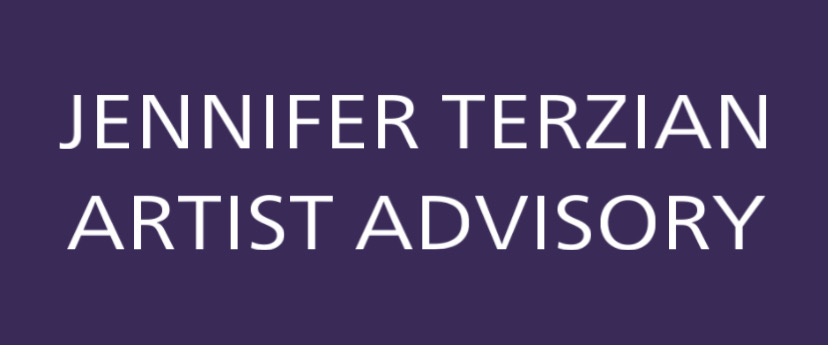
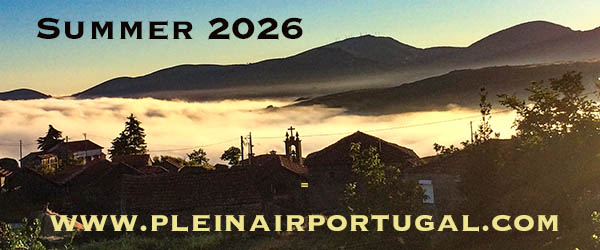

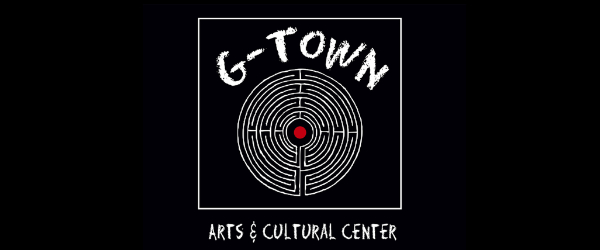











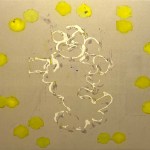

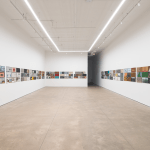


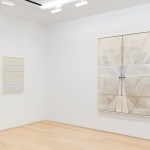
Thank you for sharing this story, that brings the crisis down to a human level.